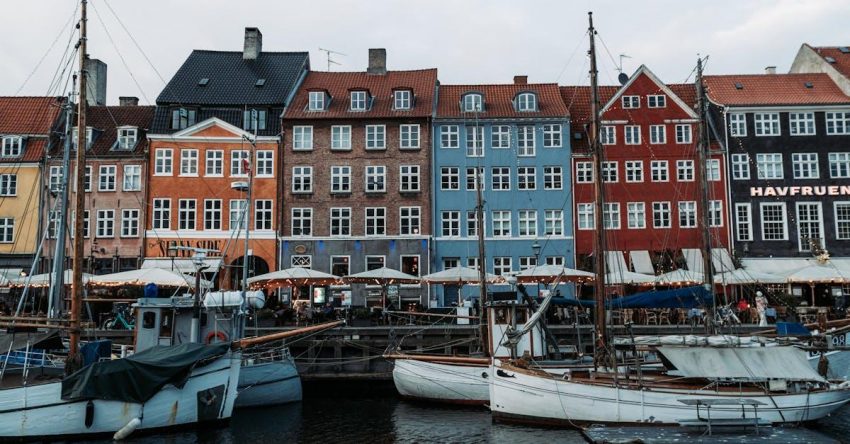Yes, Denmark is a country situated in Northern Europe, recognized for its rich history, advanced economy, and exceptional quality of life. This article provides an in-depth introduction to Denmark’s geographical, historical, and cultural significance.
Geography and Regions
Denmark consists of the Jutland Peninsula and an archipelago of over 400 islands, including major ones like Zealand, Funen, and Bornholm. While Copenhagen serves as the capital and cultural hub, other cities like Aarhus, Odense, and Aalborg are vital economic and cultural centers.
The country also oversees the autonomous territories of Greenland and the Faroe Islands, broadening its geographical and cultural diversity. Denmark’s location between the North and Baltic Seas makes it a crucial maritime nation, historically and in modern trade.
Historical Milestones
Denmark’s historical roots trace back to the Viking Age (8th-11th centuries), a period that significantly shaped European history. The Danish monarchy, one of the oldest in the world, has been a symbol of continuity through centuries of change.
In the 19th and early 20th centuries, Denmark underwent significant territorial losses but emerged as a modern, well-functioning democracy. The country’s decision to remain neutral in World War I and its resilience during World War II demonstrate its historical pragmatism.
The People of Denmark
Denmark’s population is characterized by a strong sense of national identity and pride. The Danish people, known as Danes, are often ranked among the happiest in the world, thanks to the country’s emphasis on social equity, economic security, and community well-being. The official language is Danish, and the majority of Danes identify with the Evangelical Lutheran Church.
Danish society places a high value on egalitarianism and trust, which is evident in the low levels of corruption and high levels of civic participation. The country is also a leader in gender equality and progressive social policies.
Danish Economy: A Global Example
Denmark’s mixed economy is both dynamic and resilient. Key industries include renewable energy, pharmaceuticals, agriculture, and technology. The country is a pioneer in sustainable energy, with wind power providing a significant portion of its electricity.
Small and medium-sized enterprises (SMEs) play a critical role in Denmark’s economy, alongside globally recognized corporations like LEGO, Novo Nordisk, and Maersk. The Danish welfare state ensures economic security for its citizens, balancing capitalist innovation with robust social support.
Tourism and Cultural Appeal
Denmark’s scenic landscapes, historic landmarks, and modern attractions make it a popular destination. Iconic sites like the Tivoli Gardens, the Little Mermaid statue, and Kronborg Castle attract millions of visitors annually.
The Danish design aesthetic, characterized by simplicity and functionality, is celebrated worldwide in furniture, architecture, and fashion. Denmark’s culinary scene, led by Michelin-starred restaurants such as Noma, also draws international acclaim.
Is Denmark a Country? The Global Perspective
Denmark is not only a sovereign state but also an active participant in international organizations. It is a founding member of NATO, the United Nations, and the European Union (with certain opt-outs). Its foreign policy emphasizes humanitarian aid, environmental sustainability, and international cooperation.
Conclusion
In summary, Denmark is a country that seamlessly blends historical traditions with modern advancements. From its Viking roots to its position as a global leader in sustainability and quality of life, Denmark continues to inspire and influence on the world stage.
For a more detailed exploration, visit The Danish Dream’s article on Denmark as a country. This resource delves deeper into the fascinating aspects of Denmark’s homeland and its global impact.

